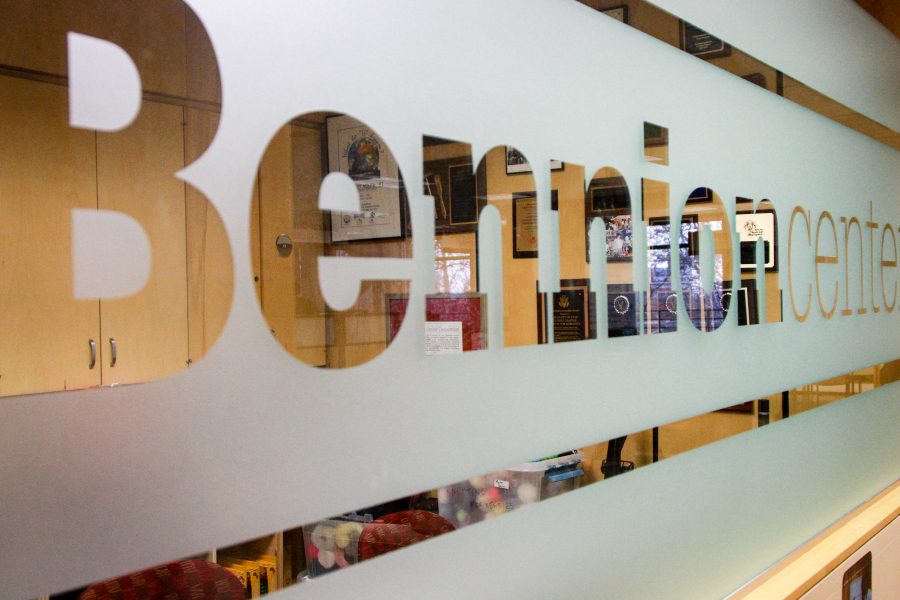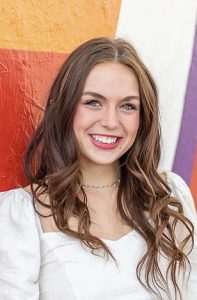Bennion Center Discusses an Inclusive College Education
The Bennion Center in the Olpin Student Union February 6, 2017. (Michael Adam Fondren | The Daily Utah Chronicle)
October 31, 2021
On Oct. 6, the Bennion Center held a discussion on the importance of an inclusive education at the University of Utah.
Facilitated by Dean McGovern, the executive director of the Bennion Center, the inclusion conversation was contributed to by David Parker, a clinical assistant professor in the Urban Institute for Teacher Education, William Smith, a professor of ethnic studies, and Mary Anne Berzins, the assistant vice president of workforce planning for human resources.
The conversation included ideas involving disability and race, the power the U has over controversy and the continuous celebration of differences.
To start the meeting, McGovern acknowledged the Native American tribes of Utah and the territory which the U stands upon.
“We pledge to act against systems of oppression that work to limit Black, indigenous, Asian, women, LGBTQ, all people of color, and create new anti-racist practices and lovingly address, and move forward from, the mistakes we have made and will inevitably continue to make,” McGovern said.
Parker then said this conversation should be a safe space to discuss the serious and controversial topics that may come up.
“In terms of education, higher education has a unique challenge I think, because our institutions of higher education weren’t created with inclusivity in mind, in fact a lot of us recognize that they were created with just the opposite and created a segregated or exclusive space,” McGovern said.
He went on to say there are several obstacles for higher education because of this. He then asked the panel what inclusive education looks like to each individual.
“I wonder if the journey of inclusion merely starts even before students get to our institution,” Berzins said. “I wonder how we really engage with students who are thinking about coming to the U.”
McGovern responded, saying Berzins’ words reminded him of how selectivity is another word for exclusivity.
Smith said in regards to inclusive education, most of the current research focuses on “challenges that students bring to the classroom.”
“I kind of reinterpret it as challenges that the institution has … and not being able to be more inclusive of all the multiple identities and general diversity that students have, so that all this is more on the institution and the instructors for being more creative,” Smith said.
He said the U can be a better institution by not only increasing inclusivity, but also by learning how to celebrate differences.
“All of us have needed different things at different times, but sometimes, speaking from personal experience, it feels like you’re a bit of a misfit because you’re not actually getting what you need,” Berzins said.
She said this burden, if not met by institutions, becomes something an individual must handle on their own. She also said the needs of students change at different times throughout their education.
Parker joined the conversation and said the definition of celebration needs to be defined. He talked about how celebrating diversity is not simply a one-day endeavor highlighting individual rights, but is instead a continual process “which is belonging, which is inclusion.”
The conversation then shifted to the racial implications words and phrases can have on people. Parker discussed issues with hate speech and racially offensive terms, saying that some believe it is a constitutional right.
“Because you have the right to say something doesn’t mean it’s right to say it,” Parker said.
He highlighted how harmful phrases and racism take away from the institution’s safety.
“Some of it is the lack of information or confusion because people don’t talk about these things early on and teach them early on in a child’s life, so modern society educates them,” Smith said.
Smith described a time where he was being interviewed and the reporter asked him a question using what he described as an offensive and archaic term without realizing. He said he corrected the reporter and explained why she should not use the term and then only three minutes later she used it again.
“It seems like this particular period of time … there is no knowledge of where this comes from,” Smith said. “I think part of it is a lack of education … at the primary school years.”









John Hedberg • Nov 2, 2021 at 1:19 pm
“We pledge to act against systems of oppression that work to limit Black, indigenous, Asian, women, LGBTQ, all people of color, and create new anti-racist practices and lovingly address, and move forward from, the mistakes we have made and will inevitably continue to make,” McGovern said.
The fact that your program entirely omits “systems of oppression that limit” Euro-Americans says a lot about the bigotry it teaches. Dr. King, whom we know believed we are all God’s children, equally fallible yet equally beloved, never made that omission, because his generation knew that doing so would undermine the humanity of whichever new group was being dis-included from the new “inclusivity”. Essentially, if you blame all our common history of human frailty on one group, you get special laws which defame that group as “enemies of the people”, you get Kristallnacht, and you get “re-education camps” like the Chinese Communist Party is currently using against its “enemies”, all of which happened when the National Socialists (Nazi’s) nationalized all the industries and the children’s schools so they could build their war machine against their World War I “oppressors”. Sound familiar?
My mother’s family emigrated from Ireland during the Potato Famine. If you ever see Ron Howard’s family history movie, “Far and Away”, you know that most Irish Catholics were literally dirt poor, sharecropping farms they didn’t own, and when those farms failed to produce for the wealthy, they were often literally beaten and burned out of their homes, with nothing for shelter or food, not unlike how the Klan operated during Jim Crow: there was no Bill of Rights in Ireland. When they arrived by the thousands in the US, Irish Catholics were so discriminated against that people literally put up signs in their shops saying “No Irish Need Apply”, not caring whether families died in the streets. It sort of reminds me of the Cherokee “Trail of Tears” I learned about in public school: Irish were beaten and whole families were turned out to starve, just like the Cherokee people. It just happened in the middle of Eastern US cities, instead of on the roads between.
Irish weren’t the only group of Europeans despised and discriminated against (the Poles, the Swedes, The Italians, the Jews, etc, etc, etc). When JFK was elected President, people accused him of treason, assuming he’d answer to a foreign Pope first, before his oath to the American people. Just to put the times in perspective, when Barack Obama was elected, he had overwhelming support by Euro-Americans, and he was handily reelected. Jack Kennedy was shot dead in the streets. I don’t think it was the Russians who were most scared of him.
Other branches of my family marched South from New England in 1861 to free good folks they never met and never would, because that’s what Abolitionist religious conservatives do: they send their kids into harm’s way to free oppressed folks (all over the world) out of gratitude for their own freedom by the hand of God, since there is no nation or people on Earth who didn’t practice oppression against its own people before folks made the decision to escape to the New World, and to a nation uniquely founded on a brand new identity that we’re all uniquely valuable individuals who merit self-rule, a novel experiment that was rickety from its inception. My family’s Abolitionist roots fought from the beginning for equality among all races and genders, just as John and Abigail Adams did. It’s always been the proud and powerful who practice oppression, everywhere on Earth, and it’s only here that the humble began to take hold of the reins with the idea that all our children are bright and beautiful, and all of them can build their dreams: as diverse groups, we the people united from all over the planet into one, E Pluribus Unum, and we fought for all childrens’ opportunity to build those dreams in every generation.
Oppressors have always been the minority, no matter which race or party they belong to, then or now. We can’t let fear of each other cause us to follow in their footsteps, since true Liberal principles acknowledge that the only real safety in society resides in a willingness to lay down our lives for each others’ freedoms, out of mutual love for each other and all our children to come. If someone comes for your neighbor’s freedom today, he or she will be coming for yours tomorrow: that’s the nature of oppression in all human hearts. Confront it for one, and you confront it for all. Partiality (hatred) enables your own inner oppressor, not just others’.
As a lifelong Liberal educated in New England public schools, we were taught the complete history, all the falling down in our failures, all the blood and sweat it took to overcome them, and all the promise that kept each new group and generation coming here and fighting for our common good, as God’s equal children, and hopefully wise stewards of all God created besides.
Anyway, oppression belongs to no one group: it’s human, just like pride and power exist everywhere. As Gandhi said, we fight it in our own selves first, and then we do our best to confront it non-violently, with love and logic, in order to help people learn & choose to tame their own inner beasts, as well, so that oppressors always feel in a minority among all those who love each other like God loves us.
With that love, Let me know what you think~!
Best Regards,
J Hedberg
John Hedberg • Nov 1, 2021 at 7:29 am
As far as I can tell, “Anti-Racism” is just racism. The new racists just gave it a new target this time. 🙂
John